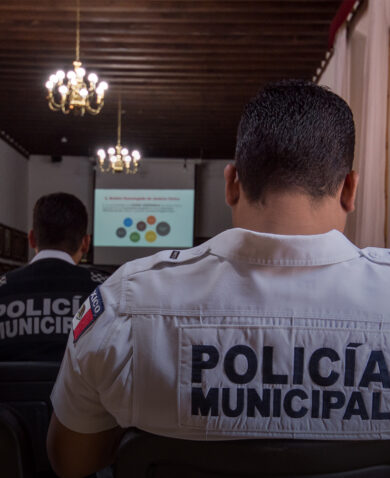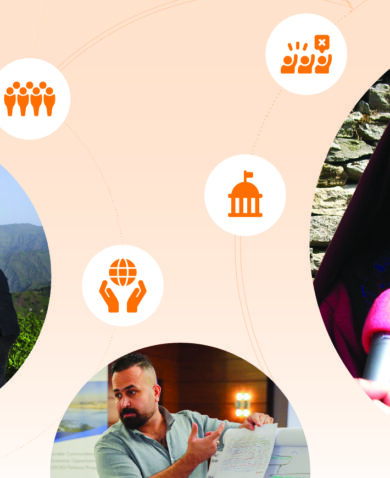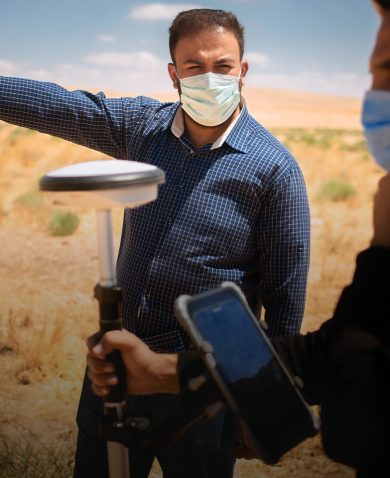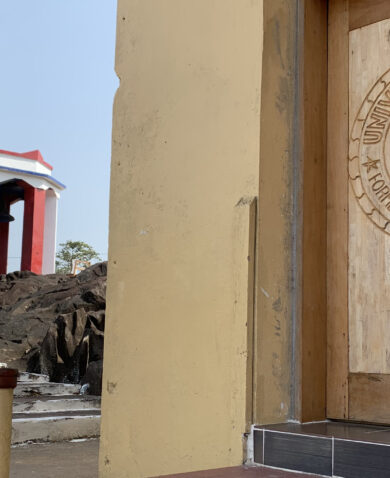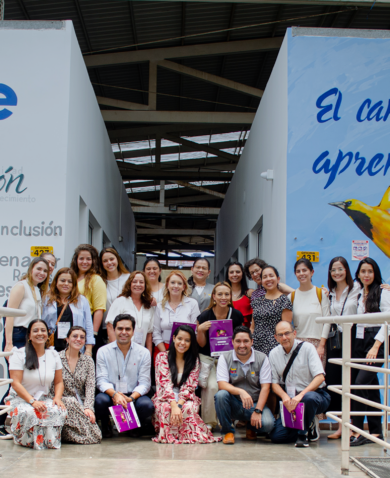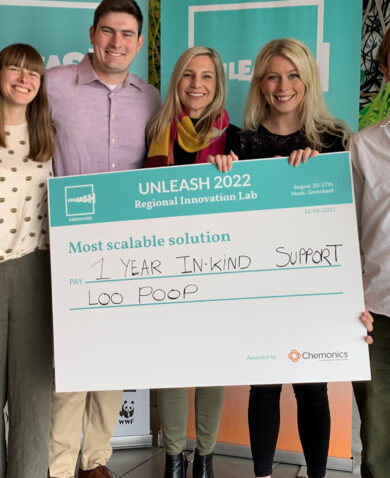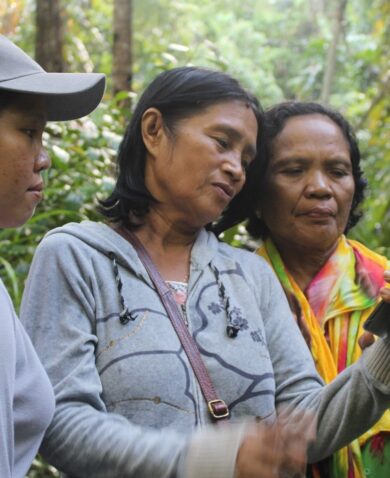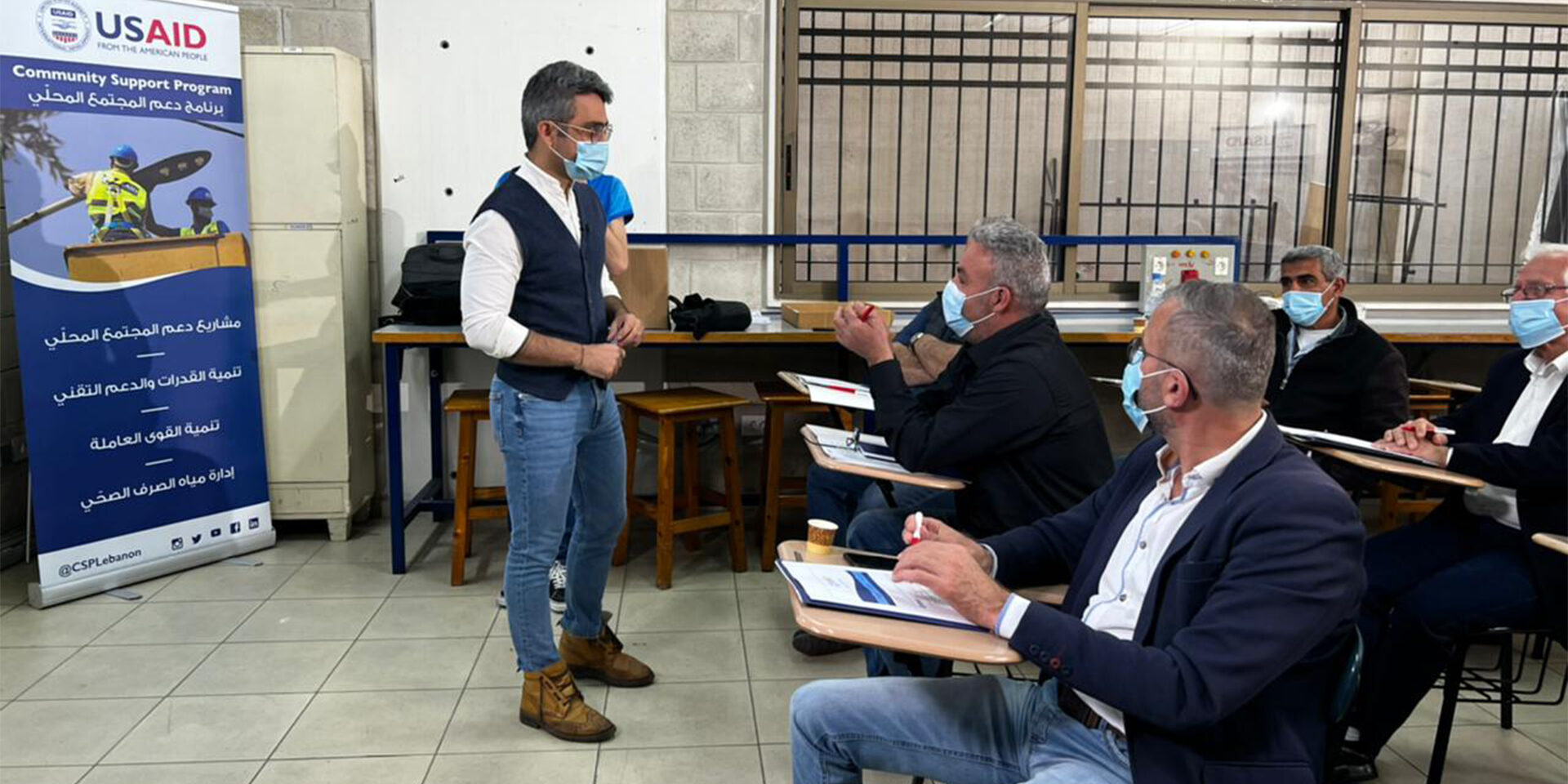
Rethinking Technical Assistance in Rapidly Changing Socioeconomic Environments
May 12, 2022 | 5 Minute ReadThe successful design and implementation of technical assistance in a rapidly changing socioeconomic environment is contingent upon participatory and systematic feedback mechanisms between implementing organizations and the communities they serve. In this blog, we share lessons from the Community Support Program in Lebanon.
Lebanon is passing through the toughest economic and financial crisis of its history, starting in October 2019 and still ongoing. The country’s GDP has shrunk from $52 billion in 2019 to $22 billion in 2021, due to the combined impacts of regional politics, high levels of public waste and corruption, COVID-19, and the 2020 Beirut blast. The World Bank has branded the financial meltdown in Lebanon as one of the three worst economic collapses of the last 100 years, globally. The crisis has led to the impoverishment of wide segments of the population (estimated at 6,100,000, including Syrian and Palestinian refugees), driving most middle-class wage earners below the poverty line. Those living in poverty climbed from 28% of the population in 2019 to more than 65% in 2021.
This financial crisis has gutted many household incomes, with some dropping from $2,000 per month in 2019 to $120 in 2021 due to the devaluation of the local currency. Losing more than 90% of actual purchasing power (in a country that imports nearly everything) has deprived local households of the ability to afford food, water, electricity, medication, hospitalization, and schooling. The scene of Lebanese individuals searching for food in public trash bins is becoming common in the capital Beirut. Stories about people dying at home are also common, as a night in the hospital could cost an average Lebanese person three times their monthly salary.
As the Lebanese pound lost its value vis-à-vis the U.S. dollar, and as tax collection rates dropped to nearly zero, the central government lost its ability to pay for commodities from international markets. One area where this has been acutely felt is electricity provision. As the government’s ability to buy fuel from international markets has diminished, so has electricity around the country. Electrical feed to households and businesses decreased to two hours per day at maximum, leaving the population in total darkness for the remaining 22 hours.
The electrical power challenge presented an opportunity for development actors already present in the country to help. The Community Support Program in Lebanon (CSP; 2018-2025), a $100 million USAID-funded program implemented by Chemonics, stepped in to provide 15 Lebanese communities with back-up electricity generators to secure increased hours of electricity per day. However, with he continued escalation of the crisis, municipalities are unable to pay for the soaring costs of fuel and maintenance, given that both fuel and spare generator parts are imported and paid for in U.S. dollars, which are becoming a rare commodity in Lebanon these days.
Establishing a Community of Practice
The traditional model for technical assistance for this kind of intervention usually consisted of training end-users on the safe operation and maintenance of the generators. Given the gravity of the situation, however, and both USAID and Chemonics’ attentiveness to sustainability, CSP’s technical assistance team moved to establish a special community of practice to address the rising challenges and to keep generators operational until national solutions were put in place, especially with the forecasted International Monetary Fund-sponsored financial and technical assistance program.
CSP’s community of practice on generator management is a platform to brainstorm additional training and capacity-building activities needed for communities to enhance operational and financial sustainability of the provided generators. The community of practice brought relevant parties together (mayors, electrical technicians, accountants, CSP experts, and concerned residents) to discuss how CSP could further assist to ensure sustainability. The CSP team made sure that all stakeholders engaged in managing the newly installed generators were present in discussions. CSP’s senior capacity building manager leads and moderates the community of practice, including inviting stakeholders for meetings and suggesting discussion points and ways forward. The community of practice also included legal, technical, and municipal experts to address questions that might arise during group discussions.
Three Lessons from Implementing a Community of Practice
Since establishing the group more than six months ago, several lessons have emerged about the design and implementation of technical assistance in a rapidly changing socio-economic environment and the workings of such a community of practice:
- Technical assistance design is not a linear endeavor. It is an iterative process in which the implementer tests new approaches as they go, especially in rapidly deteriorating or unpredictable economic conditions. The iterative process of research, action, reflection, and correction requires intentional and active listening. Communities of practice are one example of this kind of listening. As a result of active listening through the community of practice, the CSP team has designed and implemented new training sessions (not planned in the original technical assistance plan) on generator budgeting and feasibility, optimal operating models and energy saving techniques, and lowering households’ electricity consumption to save on the monthly bills. The identification and design of the new training offerings resulted from continuous discussions with the members of the community of practice.
- Technical assistance and capacity building design should be a participatory process. Affected community members should have meaningful opportunities to participate in the design of the technical assistance itself as well as further mitigation measures. Through real-time conversations on WhatsApp and periodic meetings, the community of practice provided all stakeholders with a platform to voice their concerns, frustrations, and challenges of a new operational environment. Engaging in a participatory process can also result in more inclusive and equitable interventions. For example, some issues such as reducing monthly subscription fees to poor families, were not included in the financial feasibility models that CSP had originally charted. With insights from the community, CSP was able to ensure its models adequately reflected the needs and context of those it aimed to support.
- Donors should factor in the costs of community listening, participation, and adaptation in technical assistance design and implementation. As a result of discussions within the community of practice, CSP had to allocate additional budget funds to cover costs of meetings, technical expertise, and studies that were not originally planned. The CSP team collaborated with USAID to include additional budgetary resources to allow for more learning for the project and community residents. Had it not been for the additional budgetary resources, and the resulting additional technical assistance, some of the beneficiary municipalities would have turned off their generators, given the lack of knowledge in engineering and financial management and forecasting. This would have deprived the communities of the generators’ benefits as the last defense against blackout, which would have undermined USAID and CSP’s intended goal to reduce socioeconomic tensions over resources and to improve livelihoods of vulnerable communities.
One year after the installation of 15 generators in different Lebanese communities and several months after the establishment of the community of practice on generator management, all generators are still up and running. Three municipalities were able to design annual generator budget plans and are reporting on the costs and revenues against approved budgets using customized Microsoft Excel bookkeeping systems. Municipalities are working actively with their diaspora to cover additional operational costs that local residents cannot pay due to decreased purchasing power, continuous devaluation, and hyperinflation. Despite insurmountable contextual challenges, the community of practice on generator management is proving to be an effective mechanism for ensuring increased access to electricity — an essential service during Lebanon’s darkest times.
Banner photo caption: Municipal electrical technicians receive training on reducing household electricity consumption.
Posts on the blog represent the views of the authors and do not necessarily represent the views of Chemonics.















